- Details
- Written by: Kamran Mofid
- Hits: 1215
T.S. Eliot posed the question: "Where is the Life we have lost in living? Where is the wisdom we have lost in knowledge? Where is the knowledge we have lost in information?"...
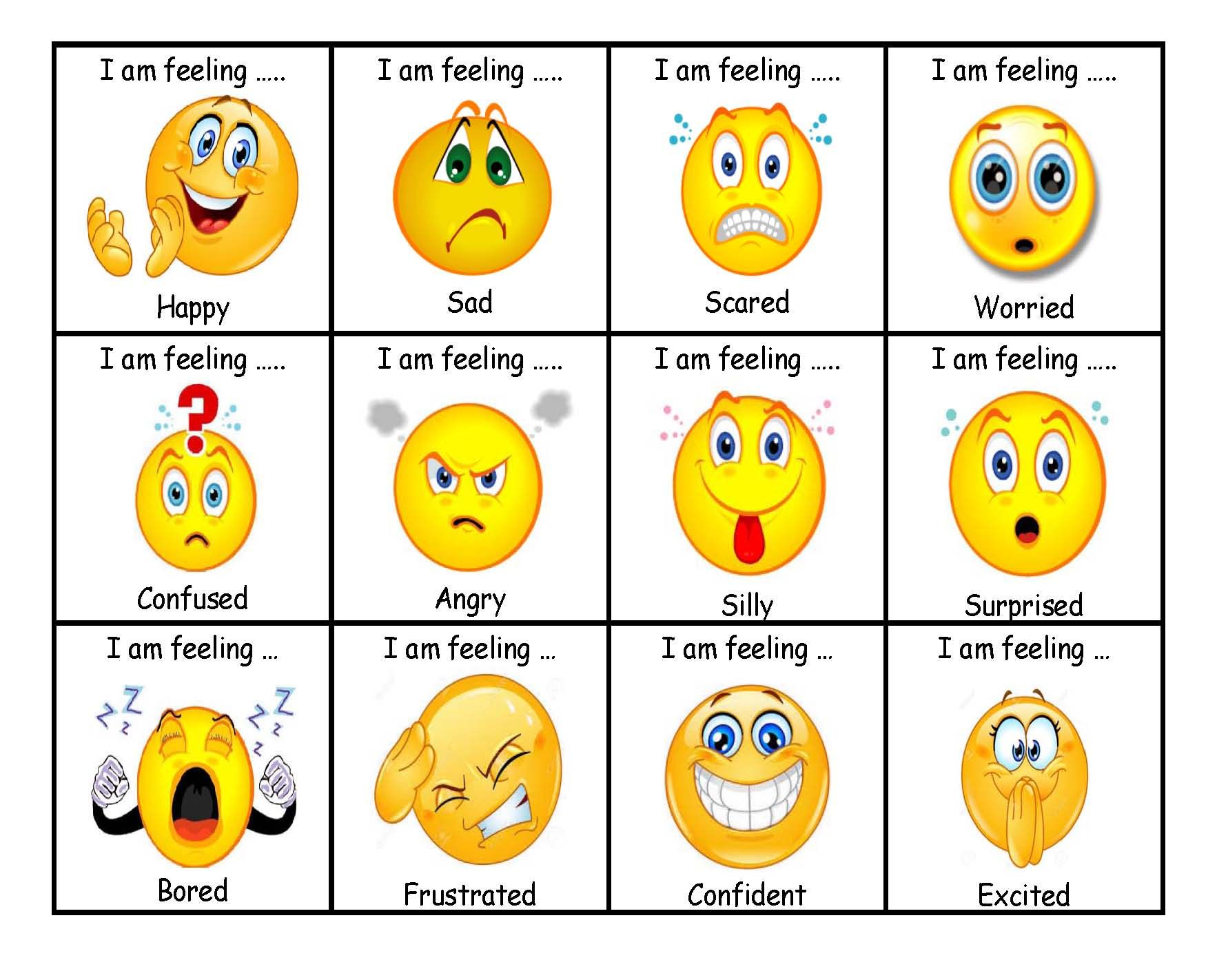
Photo: Pinterest
Social and Emotional Learning and acquiring skills such as active listening, self-awareness, empathy, kindness, love, trust, respect for others, care of mother nature and suchlike, will empower us all to lead a better and a more rewarding life, now and forever.
How to Lead With Emotional Intelligence in the Time of Coronavirus and Beyond
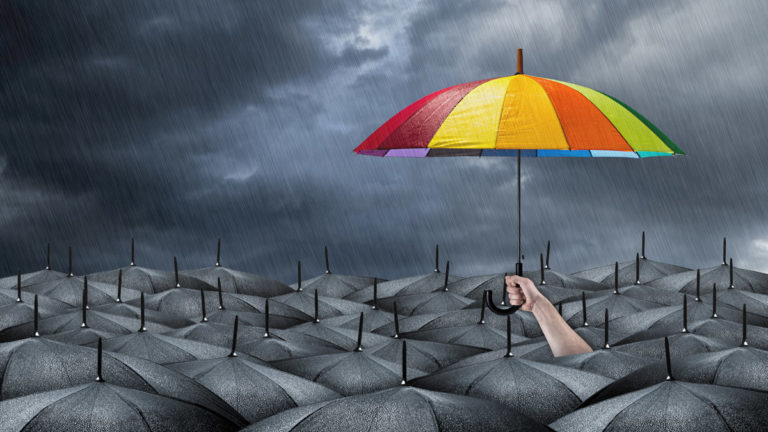
Photo:Pinterest
‘The past year has been tough on all of us, though perhaps on children most of all. A crucial stage of their education and growth is taking place under the shadow of disorder and uncertainty. Difficult times give rise to difficult emotions - anxiety, frustration, boredom, melancholy, self-pity, and many more besides.
‘When dealing with such feelings, we face the problem of articulacy. To fully process our emotions, we first need to be able to recognise, name, describe and give voice to them - a skill we call emotional literacy. Sadly, it’s an ability traditional education often neglects to teach sufficiently.
‘Though developing emotional literacy is particularly crucial for the young (who may be processing such emotions for the first time), it’s just as important for adults. All of us, young and old, need regular help to find words for our difficult feelings.’ - Excerpts from The School of Life
Emotional Education: An Introduction
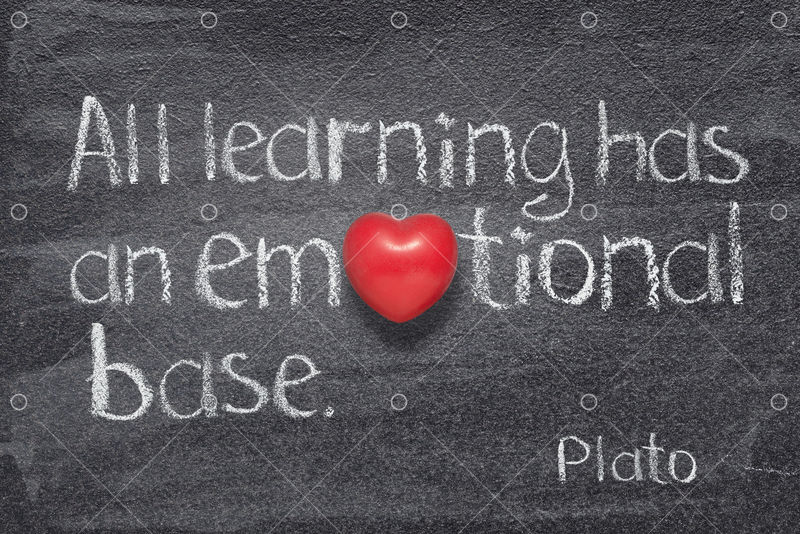
Photo: PIXLR
“Our societies have a huge collective regard for education; but they are also oddly picky in their sense of what we can be educated in. We accept that we will need training around numbers and words, around the natural sciences and history, around aspects of culture and business.
“But it remains markedly strange to imagine that it might be possible – or even necessary – to be educated in our own emotional functioning, for example, that we might need to learn (rather than just know) how to avoid sulking or how to interpret our griefs, how to choose a partner or make oneself understood by a colleague…
“The task before us is therefore how we might acquire a set of emotional skills that could reliably contribute to a capacity for ‘emotional intelligence’…
“Emotional intelligence is the quality that enables us to negotiate with patience, insight and temperance the central problems in our relationships with others and with ourselves. It shows up around partnerships in sensitivity to the moods of others, in a readiness to grasp what may be going on for them beyond the surface and to enter imaginatively into their point of view. It shows up in regard to ourselves when it comes to dealing with anger, envy, anxiety and professional confusion. And emotional intelligence is what distinguishes those who are crushed by failure from those who know how to greet the troubles of existence with a melancholy and at points darkly humorous resilience.”…Emotional Education: An Introduction
I am very pleased and grateful that at the GCGI we’ve understood, appreciated and taken this concept very seriously for a very long time now.
"Educating the mind without educating the heart is no education at all."- Aristotle
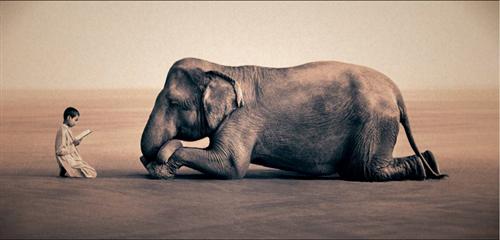
Photo: montville.net
'We live in a world with many complex problems, at all levels, local, regional and global. It is said that education is the key that opens the door to a more harmonious world.
The pertinent question is: What kind of education and learning would help us address these challenges and create a sustainable world and a better life for all?
T.S. Eliot posed the question: "Where is the Life we have lost in living? Where is the wisdom we have lost in knowledge? Where is the knowledge we have lost in information?"
Reflecting on the questions above, we are going to need an education system that respects planetary boundaries, that recognises the dependence of human well-being on social relations and fairness, and that the ultimate goal is human well-being and ecological sustainability, not merely growth of material consumption.
The new education model recognises that the economy is embedded in a society and culture that are themselves embedded in an ecological life-support system, and that the economy can't grow forever on this finite planet.
In short, we need to listen to our hearts, re-learn what we think we know, and encourage our children to think and behave differently, to live more in sync with Nature.
If we do this successfully we can become wiser as a species, more “eco-logical.” We and the planet that gave birth to us can be happier and healthier, healed and transformed.'...The Journey to Sophia: Education for Wisdom
Below I have noted a selection of related readings from the GCGI Archieves for your interest:
Our Emotional Inheritance and the need for Emotional Education
Britain today and the Bankruptcy of Ideas, Vision and Values-less Education
Socio-economic justice and education
A Path to a Spiritual Education for the Common Good: Education for a Just and Sustainable World
Towards an Education Worth Believing In
Yes, it is true: “Education is what makes us fully human”
What if Universities Taught KINDNESS?
Why Happiness Should be Taught at Our Universities
Nature the Best Teacher: Re-Connecting the World’s Children with Nature
On the 250th Birthday of William Wordsworth Let Nature be our Wisest Teacher
A Sure Path to build a Better World: How nature helps us feel good and do good
Finding sanctuary in poetry during lockdown
Reflecting on Life: My Childhood in Iran where the love of poetry was instilled in me
Poetry is the Education that Nourishes the Heart and Nurtures the Soul
The beauty of living simply: the forgotten wisdom of William Morris
- Details
- Written by: Kamran Mofid
- Hits: 1606
Prophet for Our Times: The Life and Teachings of Mohammad-Taqi Bahar
A Journey of Love and Hope
محمدتقی بهار- Mohammad-Taqi Bahar
(10 December 1886, Mashhad- 22 April 1951, Tehran)
‘Bahar was a revolutionary thinker, a tireless democrat, a committed humanist,
and a voracious searcher after truth, whose words and deeds continue to inspire.’
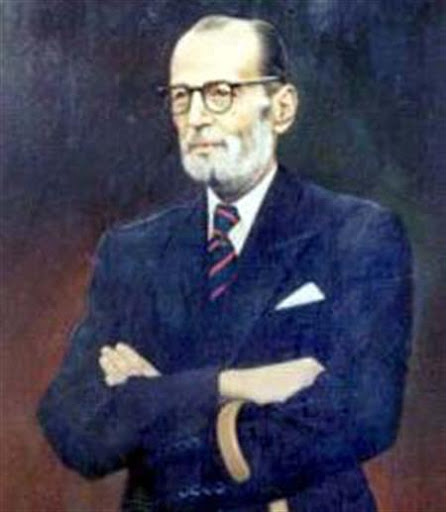
Photo:pinterest
‘Mohammad-Taqi Bahar (Persian: محمدتقی بهار; also romanized as Mohammad-Taqī Bahār; 10 December 1886 in Mashhad – 22 April 1951 in Tehran), widely known as Malek osh-Sho'arā (Persian: ملکالشعراء) and Malek osh-Sho'arā Bahār ("poet laureate," literally: the king of poets), was a renowned Iranian poet, scholar, politician, journalist, historian and Professor of Literature. Although he was a 20th-century poet, his poems are fairly traditional and strongly nationalistic in character…’-Mohammad-Taqi Bahar
Below, I wish to quote the poem by Bahār, which has over many years now, nourished and nurtured my soul. I had noted this, in more details, in a recent posting, honouring and celebrating the life of Ostad (Master) Mohammad Reza Shajarian who embodied the timeless beauty of Persian music.
“O God, O Universe, O Nature, Turn our dark night into Dawn” - MORḠ-E SAḤAR (Bird of Dawn)
(Morghe Sahar in Persian means “mourning dove.”)
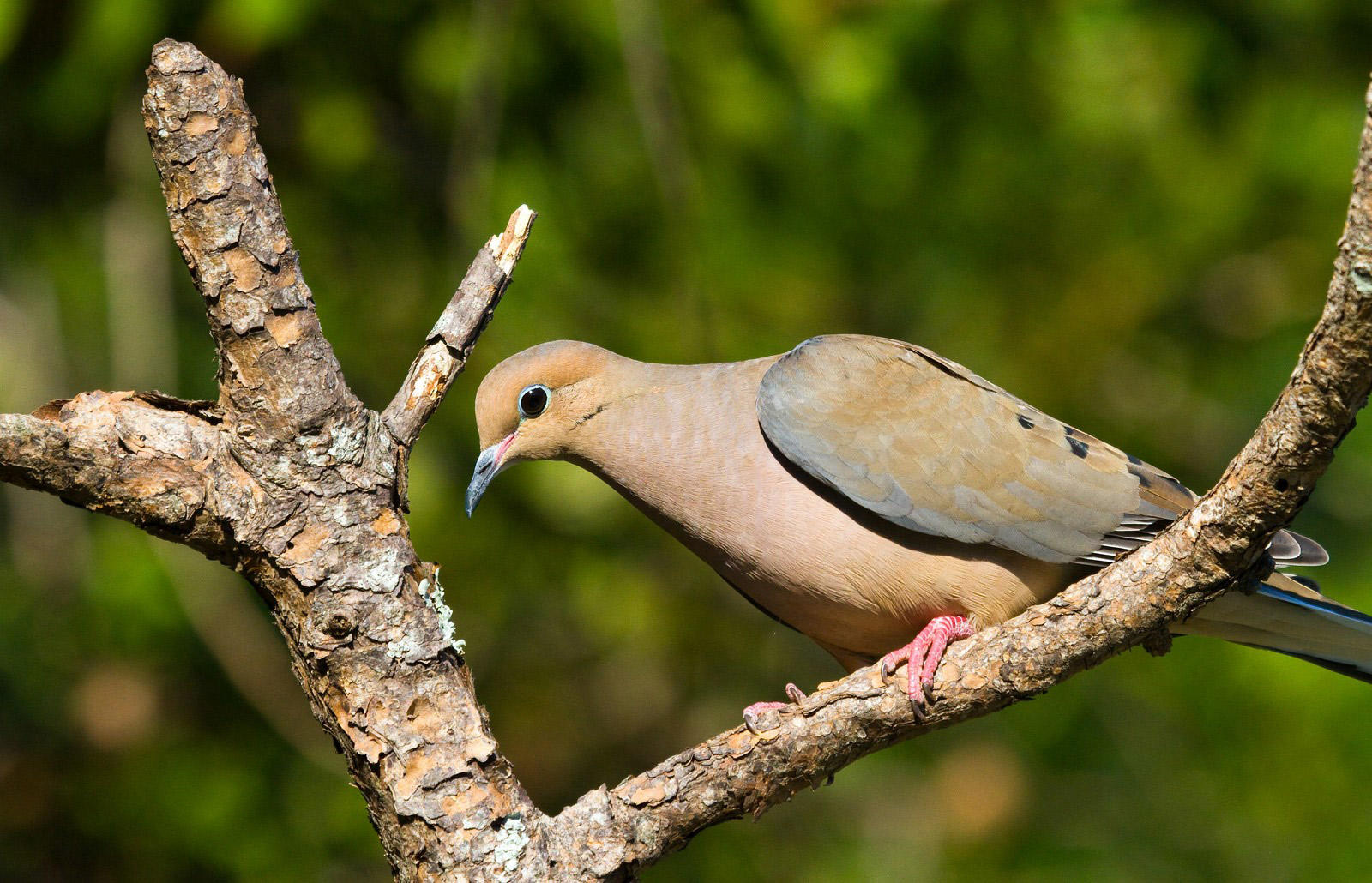
Photo: Mark Eden, Via AUDUBON
Bahar’s Poem of Freedom: MORḠ-E SAḤAR
“O God, O universe, O nature
Turn our dark night into dawn…..
Now is spring, flowers have bloomed
Clouds in my eyes are filled with dew
This cage, like my heart,
Is narrow and dark
Oh fiery sigh! start a flame in this cage!”
And with a breath, set fire to the battlefield
Of the mass of this earth
The cruelty of tyrants and the injustice of hunter
Have broken my nest to the winds”
“O Morning bird, mourn!
O Morning bird, mourn!
Further renew my pain
with a burning sigh break this cage and overturn it
Wing-tied nightingale, leave the corner of this cage
Compose the song of freedom for humanity...’
This poem, has become the national anthem of freedom in Iran and was famously sung by Mohammad Reza Shajarian.
......
The Poet’s Daughter: Malek O’Shoara Bahar of Iran and the Immortal Song of Freedom
A Book for Our Time: A Book that Speaks to Us Now
‘The many books and articles written about Bahar have focused on his work rather than on the man, on his fame as one of the greatest neoclassical poets in Iran since the 14th century, and his pursuit of social reform and freedom for the Iranian people through his writings, politics, and academic work.
'I would like to take you by the hand and lead you back in time, through the rooms my father inhabited, the flowers he gazed upon, the books that sustained him, the trees under which he sat, and the family that he loved. By taking this journey with me, I hope you will gain a sense of my father and his family within our private world, a world we affectionately called PARADISE.’- Parvaneh Bahar
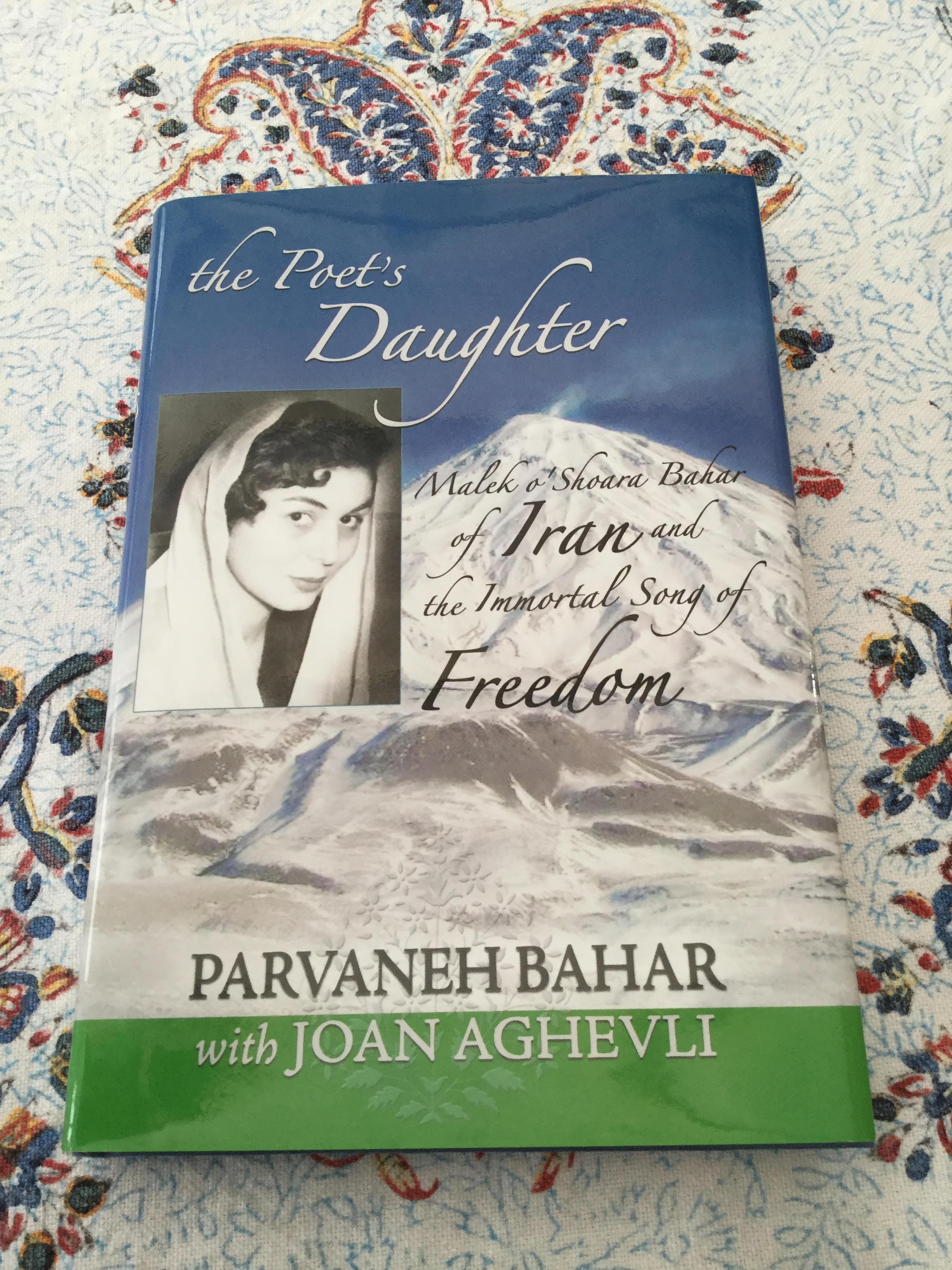
This is my own copy of the book, very much loved and cherished, Kamran-Photo: Kamran Mofid
‘As the daughter of this famous but persecuted writer, academic and politician, Parvaneh grew up amidst the intellectual and political turmoil of her father’s involvement in the democracy movement in Iran. Suffering through his imprisonments, sharing his exile, and accompanying him to Switzerland to seek a cure for his tuberculosis, she absorbed his teaching and his passion for the freedom and dignity of all people. These themes became a template for her own life, and she carried them with her when she came to the US in the 1950s as the young wife of a diplomat, learning the ropes as a Washington hostess while throwing herself into the Women’s Movement and marching behind Dr. Martin Luther King in Alabama.
Parvaneh's memoir, The Poet's Daughter, portrays Iran in the early and mid-20th century and the vital role her father played as the "King of Poets". He is still revered as the greatest poet and visionary of the 20th century. In street protests in 2009, street demonstrators sang his poems of freedom. Her life has been dedicated to fighting for social justice for all including equal rights for women.’- Excerpts from CMES, Harvard University.
From the Inside Flap
They called it Paradise, their beautiful home just outside old Tehran, and nurtured there a close bond of mutual love and respect for intellectual freedom. It was a magnet for leading thinkers and activists, who visited regularly for conversation with their best living poet and tireless champion of democracy, human rights, and women's empowerment Malek o Shoara Bahar. Then one morning the children watched in horror as police dragged him away . . . Intimate and emotionally engaging, this powerful and timely memoir introduces western readers to the high-profile Iranian hero Malek o Shoara Bahar whose freedom poem Morghe Sahar ( Bird of the Dawn ) is sung regularly with great passion at rallies for human rights throughout Iran. Bahar (1882 1951) tuned his political idealism and vast poetic gifts to Iranian s deepest feelings, championing democracy, freedom, and social justice. He is revered internationally by progressive Iranians and celebrated as Iran's best poet of the 20th century, many say of the past 500 years."
From the Back Cover
"The Poet's Daughter is an engrossing coming-of-age tale of a Persian girl torn between devotion to her father--Bahar, the last icon of classical Persian poetry--and her own relentless desire to fashion for herself an identity as an independent, assertive modern woman. . . The beguiling simple elegance of the narrative never shies away from the harsh and heroic realities of the story." --Abbas Milani, Director of Iranian Studies, Stanford University, author of The Shah
"Parvaneh emerges from these pages as a role model for women everywhere who struggle to be heard. . . one of the rings in a chain of liberated women who speak the truth to a world ready to listen." --Shahrnush Parsipur, author of Women Without Men
" A touching evocation of a man, a great poet, a powerful political figure, as told by his loving daughter. . . You will learn a lot in this book about Iran and about poetry and about women. You will be deeply moved." --Marvin Zonis, Professor Emeritus, The University of Chicago and author of Majestic Failure: The Fall of the Shah and the Political Elite of Iran
"An absorbing memoir of an ongoing rich life that spanned much of the 20th century and is freshly relevant today--as thousands of Iranians rally in the streets for freedom, singing the anthems of the author's father, Malek o'Shoara Bahar." --Barbara Meade, co-founder and owner, Politics and Prose
"Malek o'Shoara Bahar was the enlightened cultural father of all Iranians who lived after him. The Poet's Daughter reveals untold minutia about the hardships that Iran's most prominent poet and literary scholar of the 20th century had to endure in his pursuit of democracy for his country. I highly recommend it to all readers." --Masoud Askari Sarvestani, Ph.D, Editor, Rahavard Persian Journal
"I recommend this book to everyone; not only does it weave a beautiful spell with its artful rendering of scenes. . . it speaks of the deep love between father and daughter, as well the inseparability of art and freedom." --Dr. Helene Saraj, Director, Foundation Culturelle Bahar, Paris"
A selection of related topics from the GCGI Archives:
My Poem of the month (October): MORḠ-E SAḤAR (Bird of Dawn)
Modern Iran: The Most Misunderstood Country
The Art of Persia: The Everlasting Magnificent Story of Beauty, Wisdom and Love
Cradle of god: Spirituality in the Land of the Noble
Revisiting the Persian cosmopolis: The World Order and the Dialogue of Civilisations
Zoroastrianism the ancient religion of Persia that has shaped the world
The healing power of ‘Dawn’ at this time of coronavirus crisis
Simorgh tells me: We are the leaders we have all been searching for
Embrace the Spirituality of the Autumn Equinox and Discover What it Means to be Human
On the 250th Birthday of William Wordsworth Let Nature be our Wisest Teacher
Finding sanctuary in poetry during lockdown
Reflecting on Life: My Childhood in Iran where the love of poetry was instilled in me
Poetry is the Education that Nourishes the Heart and Nurtures the Soul
- Details
- Written by: Kamran Mofid
- Hits: 1397
“O God, O Universe, O Nature, Turn our dark night into Dawn” - MORḠ-E SAḤAR (Bird of Dawn)
I offer this, one of the most beautiful of Persian poems, to honour and celebrate the life of Ostad (Master) Mohammad Reza Shajarian who embodied the timeless beauty of Persian music.
Ostad Mohammad Reza Shajarian (1940-2020)
He taught us that ‘Humanity is the aim of all arts’ . May he rest in Peace.
هرگز نمیرد آنکه دلش زنده شد به عشق
‘He whose heart has been revived by love will never die.
Our eternity has been written in the record of the world’- Hafez
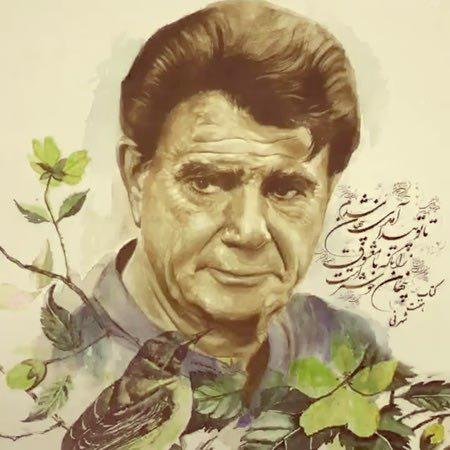
The passing of Mohammad Reza Shajarian is a monumental loss for all Iranians, as well as all the Persian speakers everywhere in the world.
His voice will always be a reminder of our land of birth, our identity,
the timeless and precious beauty of persian poetry, mysticism and everlasting wonder. (Kamran Mofid)- Photo:Balatarin
‘In a year filled with exceptional challenges and bad tidings, the news of Mohammad Reza Shajarian’s passing is especially devastating. Known simply as "Ostad," Shajarian was more than a legendary Iranian singer. His iconic voice became the cry of a nation in its struggle for justice, which has spanned for over a century.
The outpouring of grief and emotions from Iranians the world over is a testament to his unparalleled genius and the weight of his impact on Iranian society, culture, and politics. Born in Mashhad in 1940, Shajarian was trained in Quranic recitation and later in the classical singing of Persian poetry. Despite his traditional style of music in an era of the growing popularity of pop music, Shajarian eventually rose to become perhaps the greatest Iranian vocalist and most beloved artist of Iran.
Reciting the poetry of Ferdowsi, Hafez and Rumi in his dulcet yet powerful voice, Shajarian fused the varied threads of Iran’s rich cultural tapestry and complex identity into a symbol of the nation that Iranians of all stripes could admire and feel connected. Both before and after the revolution of 1979, his songs often called for justice, engendered pride, and a longing for better days ahead.
Known globally for his incredible voice, Shajarian was revered by Iranians of all ages, many of which grew up with his voice. He was not just a musician. His social, political, and cultural impacts on Iranian society are inseparable from his artistic accomplishments. While Iranians have faced innumerable difficulties over many decades, Shajarian’s voice remained a rare constant that brought Iranians together, quite literally to sing in unity. In times of despair, his song reminded us to stay hopeful for the coming of the dawn.’- Excerpts from the NIAC’s Statement
MORḠ-E SAḤAR (Bird of Dawn)
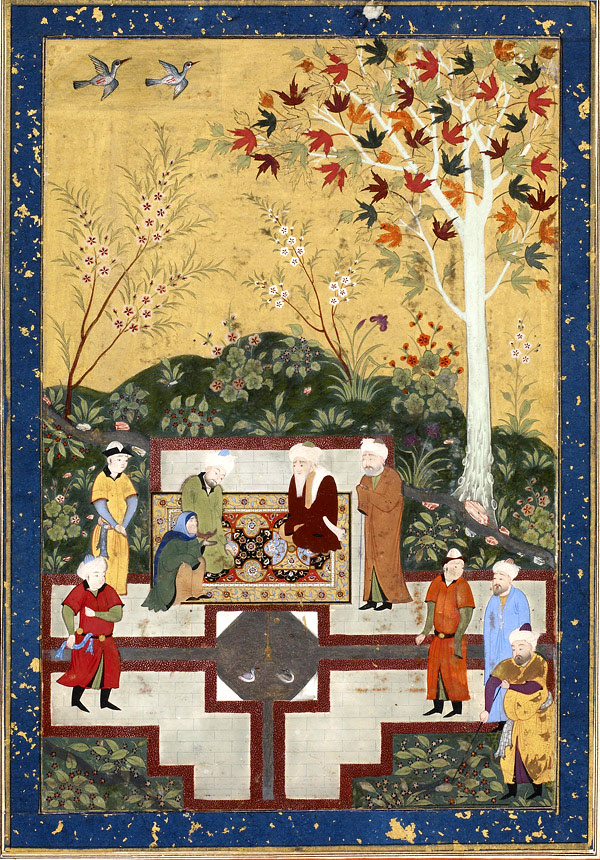
Photo: Pinterest
This is the poem by the Iranian poet Mohammad-Taqi Bahar, and
famously sung by Mohammad Reza Shajarian.
“O God, O universe, O nature
Turn our dark night into dawn…..
Now is spring, flowers have bloomed
Clouds in my eyes are filled with dew
This cage, like my heart,
Is narrow and dark
Oh fiery sigh! start a flame in this cage!”
And with a breath, set fire to the battlefield
Of the mass of this earth
The cruelty of tyrants and the injustice of hunter
Have broken my nest to the winds”
“O Morning bird, mourn!
O Morning bird, mourn!
Further renew my pain
with a burning sigh break this cage and overturn it
Wing-tied nightingale, leave the corner of this cage
Compose the song of freedom for humanity.’- Read the entire poem HERE
......
Shajarian Concert for Bam - HamNava ba Bam
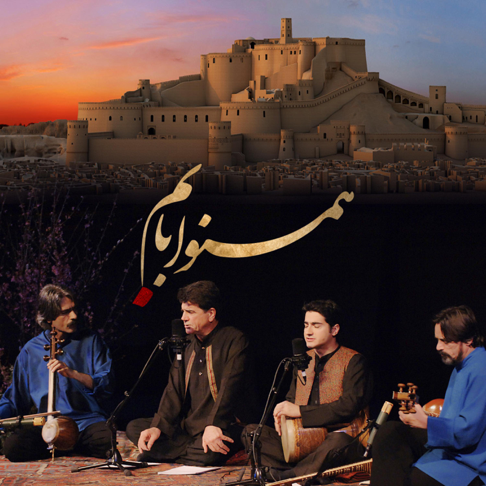
‘Mohammad Reza Shajarian (Persian: محمد رضا شجريان) (born September 23, 1940 in Mashhad, Iran) is a Persian traditional singer and undisputed Master (Ostad) of Persian music. Shajarian is one of the most well known Iranian artists and probably the greatest singer in the history of the recorded Persian traditional music.Shajarian's all-star group consists of Hossein Alizadeh, (the tar virtuoso) Kayhan Kalhor on kamancheh and Shajarian's son, Homayun (on Tombak),who is also a vocalist in the group. Shajarian has always criticized the Iranian cultural officials for creating a bureaucracy that prevents his group from performing in Iran. After the Bam earthquake, he performed a fantastic concert in Vahdat Hall in Tehran called " Hamnava ba Bam ". About 3000 people were in that concert. They were very sad for that big disaster and at the same time happy to see their own artist in Iran. Here on Iran Info we show the concert for the public.’ - www.iraninfo.dk
Watch this fascinating and timeless concert HERE
Continue and read more on related topics:
Modern Iran: The Most Misunderstood Country
The Art of Persia: The Everlasting Magnificent Story of Beauty, Wisdom and Love
Cradle of god: Spirituality in the Land of the Noble
Revisiting the Persian cosmopolis: The World Order and the Dialogue of Civilisations
Zoroastrianism the ancient religion of Persia that has shaped the world
The healing power of ‘Dawn’ at this time of coronavirus crisis
Simorgh tells me: We are the leaders we have all been searching for
Embrace the Spirituality of the Autumn Equinox and Discover What it Means to be Human
On the 250th Birthday of William Wordsworth Let Nature be our Wisest Teacher
Finding sanctuary in poetry during lockdown
Reflecting on Life: My Childhood in Iran where the love of poetry was instilled in me
Poetry is the Education that Nourishes the Heart and Nurtures the Soul
- 'Creation Is Groaning!': A Wake-up Call
- Fraternity, Social Friendship, the Common Good, Seeking what is Morally Good
- Love and the common good to heal the wounds of the coronavirus crisis: Pope Francis
- Racism and the Whitesupremacy in the US: Now and Then
- The Pandemic and the Global Moral and Spiritual Bankruptcy
